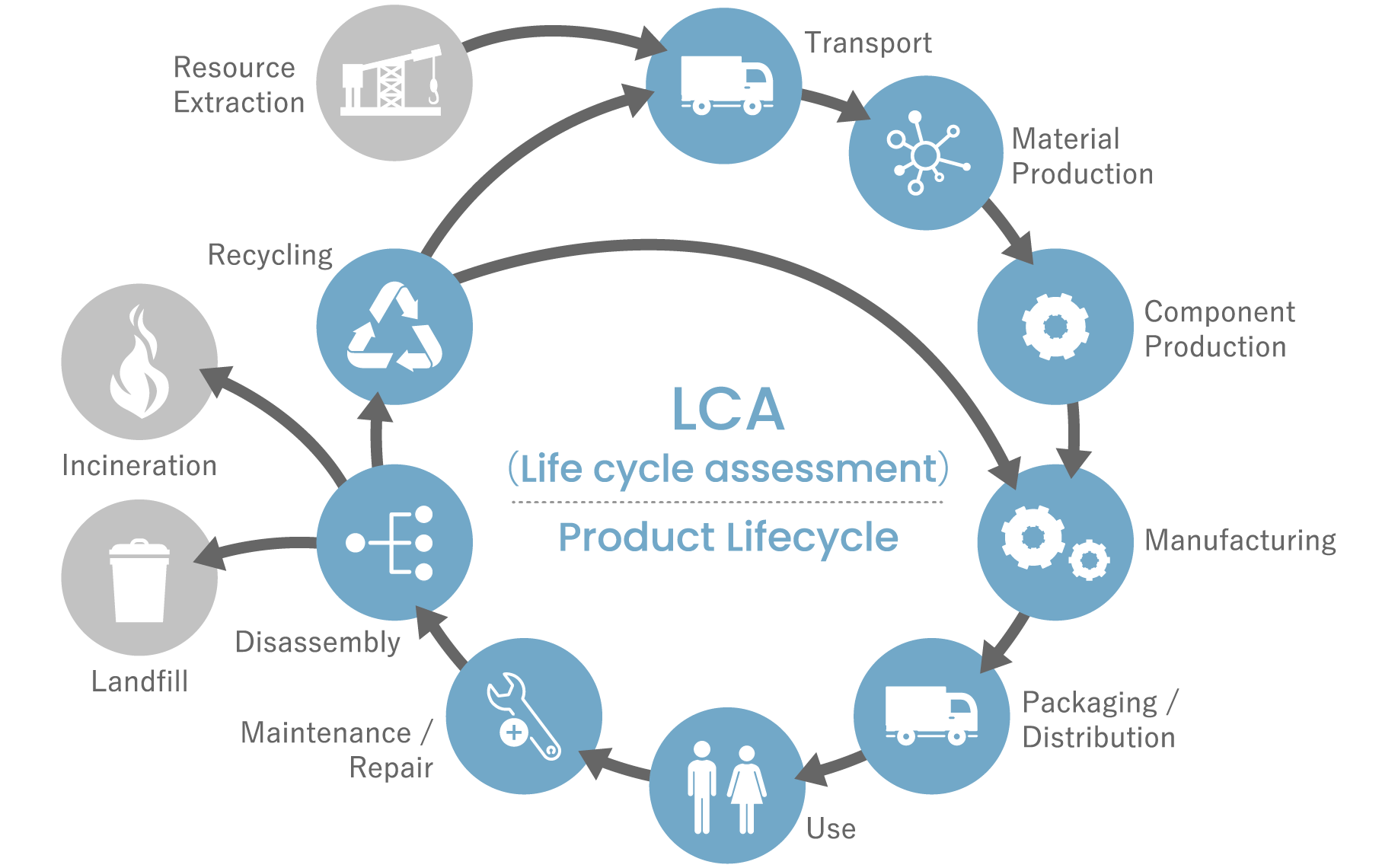
About EPD
About EPD
- HOME
- EPD
- About EPD
EPD (Environmental Product Declaration)
EPD is an international framework for transparent and credible LCA-based data
Companies and organization can issue their EPDs via EPD programs. EPD programs are operated by EPD Program Operators (EPD POs) around the world in accordance with ISO 14025, and in Japan, SuMPO (Sustainable Management Promotion Organization) operates an EPD program, SuMPO EPD. EPD is a framework for producing quantified environmental information of products using the Life Cycle Assessment (LCA) methodology based on ISO 14040 and 14044. Only product environmental information including LCA that has passed independent verification by registered verifiers or verification bodies based on ISO 14025 can be disclosed as valid information on the EPD program website. The SuMPO EPD website contains a list of valid EPDs within the program.

Characteristics of EPD
Life Cycle Assessment (LCA):
The core part of EPD is quantitative product environmental information using the LCA methodology. LCA evaluates the environmental impact of products not only on global warming but also in multiple impact categories and include the most upstream life cycle processes such as raw material extraction.
Products and services that can have EPDs:
SuMPO EPDs are for all products and services, and are available to businesses worldwide regardless of the location of production and destination of products. SuMPO EPD allows EPDs not only for full-LCA (Cradle to Grave) but also for partial-LCA (Cradle to Gate), so any business, from raw material suppliers to final product assemblers in the supply chain can join the program.
Product Category Rules (PCRs):
EPDs are based on Product Category Rules (PCR), which are common LCA calculation rules formulated for product groups in accordance with ISO standards. Not only does this enable multiple businesses to disclose information on a fair and equitable common basis, but adherence to the same PCR for calculation is crucial for pursuing comparability of environmental information between products.
Third-Party Verification:
LCA studies and information in EPDs undergo verification by skilled experts who ensure its third-party independence and impartiality. Only information that has been verified to comply with PCR and the GPI can be disclosed as a valid EPD, leading to increased reliability for information recipients.
Information Disclosure:
With SuMPO EPD, EPDs are published on the program’s website in accordance with ISO 14025. In addition to quantified LCA results, EPDs include other qualitative information necessary for information recipients to correctly understand the environmental performance of products, thus promoting appropriate communication of environmental information. Confidential information related to product patents is not included in the published EPDs. EPDs can transfer verified and reliable primary LCA data of products from upstream to downstream in the supply chain while maintaining confidentiality.
About the disclosed information
Published EPDs can be searched and viewed via a link. The validity period of SuMPO EPD is 5 years, and only valid EPDs within the validity period are displayed on the search page. Expired EPDs are invalid information, and using expired in communication is prohibited. EPD owners (e.g., product manufacturers) are responsible for updating EPD data under their own responsibility in the event of changes to the disclosed content, and the information contained in the EPD must always be up-to-date.

